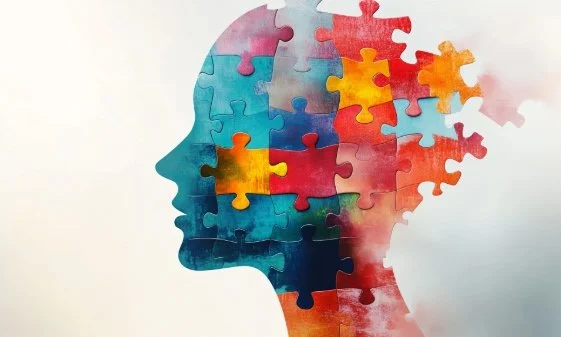New Global Study May Transform Mental Illness Treatment by Studying Causes
Cardiff University Researchers Are Analysing Biological and Social Data
November 14, 2025
A major research project in the U.K. is studying why serious mental illnesses like schizophrenia and bipolar disorder happen, so that new, safer treatments can be developed. It involves collecting detailed data from 600 people and sharing it with scientists around the world to change how these illnesses are understood, diagnosed and treated.
For more than 50 years, people with serious mental illnesses have been given the same types of medication, mainly anti-psychotics and lithium, according to BBC. These drugs can reduce symptoms like delusions or mood swings, but they also come with serious side effects. People taking them may gain a lot of weight quickly, have heart problems or feel emotionally numbed.
However, these medications do not work for everyone, and life expectancy for people with these illnesses is still 10 to 20 years shorter than average.
The new study is being conducted by Cardiff University’s Brain and Genomics Hub, focusing on schizophrenia, bipolar disorder and schizoaffective disorder.
Schizophrenia is a long-term mental illness that affects how a person thinks, feels and behaves, often causing symptoms like delusions, hallucinations and disorganised thinking. Bipolar disorder causes extreme mood swings that include emotional highs, known as mania, and lows, or depression, sometimes with changes in energy, sleep and behaviour. Schizoaffective disorder combines features of both schizophrenia and mood disorders, meaning a person may experience symptoms like hallucinations or delusions along with periods of depression or mania.
The researchers say the medical system has made progress in treating physical illnesses like cancer, but not mental illnesses. This study is meant to change that by finding out what actually goes wrong in the brain and body when someone develops a serious mental illness.
Instead of looking only at symptoms, the team is collecting a wide range of information including people’s life experiences, their thinking patterns, brain structure and brain activity. Some of the biological data involves advanced brain scans and genetic testing, including next-generation DNA sequencing. The study wants to understand what triggers psychotic disorders and why they take different forms in different people.
Professor Neil Harrison, who leads the team, said that better understanding the causes could help scientists and doctors develop new treatments and even prevent serious illness before it begins. He said current treatments were developed before scientists really understood how the brain works, and now is the time to go back to the beginning and ask what is really happening at the level of brain processing.
The study represents a shift in mental health research.
For decades, mental illnesses like schizophrenia and bipolar disorder have been treated primarily through symptom management rather than prevention or personalised care. Researchers now want to understand what causes these illnesses at a deeper level, whether that means genetic patterns, environmental factors like stress and trauma, or the way the brain is wired and functions over time.
By collecting such a wide range of information and focusing on causes rather than just diagnosis, the project may move the field toward earlier, more effective and more humane interventions. It also recognises that mental illness is not just a biological problem. Social conditions, life experiences and the way the health system treats people all play a role in how illness begins, unfolds and is managed.
This is important from a public health viewpoint because improving treatment is only one part of reducing harm. To truly help people live longer and better, health systems must also remove stigma, offer early support and treat patients with dignity. Studies like this one could eventually lead to changes in policy, funding and public understanding, helping people not only survive but thrive.
You have just read a News Briefing by Newsreel Asia, written to cut through the noise and present a single story for the day that matters to you. Certain briefings, based on media reports, seek to keep readers informed about events across India, others offer a perspective rooted in humanitarian concerns and some provide our own exclusive reporting. We encourage you to read the News Briefing each day. Our objective is to help you become not just an informed citizen, but an engaged and responsible one.

